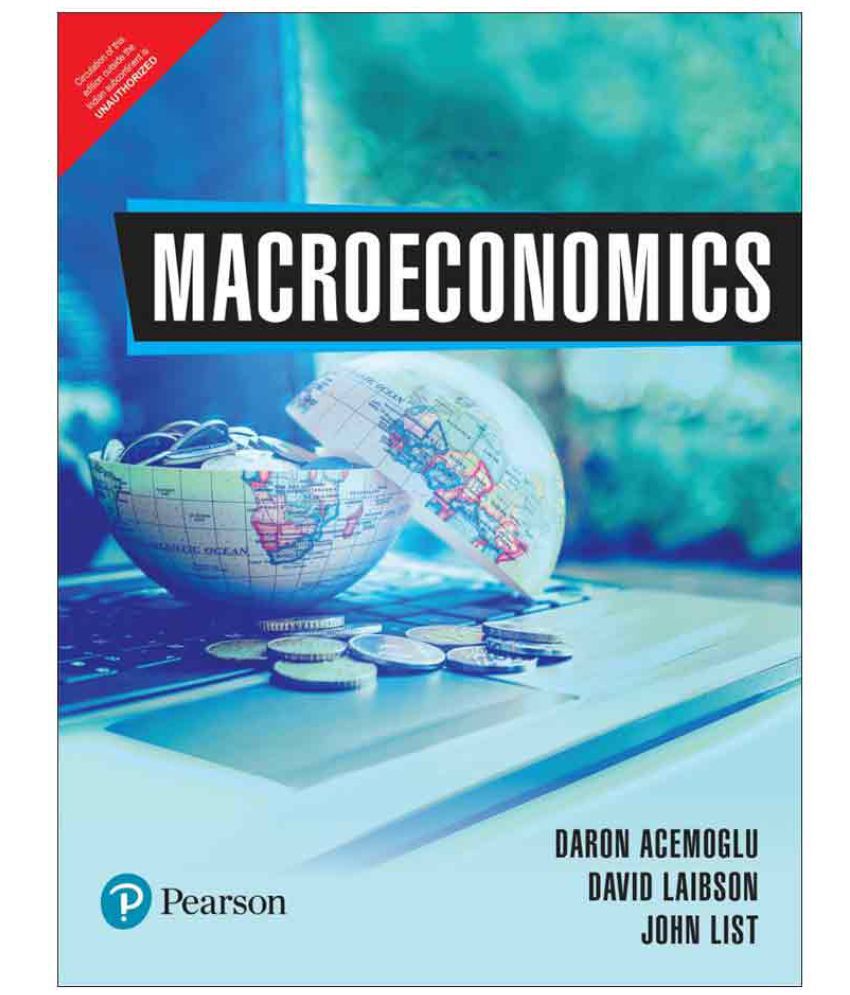Throughout Macroeconomics, authors Daron Acemoglu, David Laibson, and John List use real economic questions and data to help students learn about the world around them. Taking a fresh approach, the authors use the themes of optimization, equilibrium and empiricism to illustrate the power of simple economic ideas, and their ability to explain, predict, and improve what happens in the world. Each chapter begins with an empirical question that is later answered using data in the Evidence-Based Economics feature. As a result of the text’s practical emphasis, students will learn to apply economic principles to guide the decisions they make in their own lives.
Features:
Three key principles — optimization, equilibrium, and empiricism — lie at the heart of the authors’ approach.
1. Optimization. The first principle — that people try to choose the best available option — is optimization. Economists believe that optimization explains most choices people make, including minor decisions like deciding whether to eat a cheeseburger, and major decisions like deciding whom to date or marry. When people fail to optimize perfectly, economic reasoning can be used to analyze the mistake and to suggest a better course of action.
2. Equilibrium. Economic systems tend toward equilibrium, wherein each economic actor feels that he or she cannot do any better by picking another course of action. This principle highlights the connections among economic actors and their choices. In a state of equilibrium, consumers and purveyors of goods and services are simultaneously optimizing, and their behaviors are consequently intertwined.
3. Empiricism. While the first two key principles are conceptual, the third is methodological. Economists use data to test economic theories, learn about the world, and speak to policymakers. The emphasis on matching theories with real-world data to answer specific questions helps to show students the evidence behind the theory, making economics concrete, interesting, and fun.
Table of Contents:
I. Introduction to Economics
1. The Principles and Practice of Economics
2. Economic Methods and Economic Questions
3. Optimization: Doing the Best You Can
4. Demand, Supply, and Equilibrium
II. Introduction to Macroeconomics
5. The Wealth of Nations: Defining and Measuring Macroeconomic Aggregates
6. Aggregate Incomes
III. Long-Run Growth and Development
7. Economic Growth
8. Why Isn't the Whole World Developed?
IV. Equilibrium in the Macroeconomy
9. Employment and Unemployment
10. Credit Markets
11. The Monetary System
V. Short-Run Fluctuations and Macroeconomic Policy
12. Short-run Fluctuations
13. Countercyclical Macroeconomic Policy
VI. Macroeconomics in a Global Economy
14. Macroeconomics and International Trade
15. Open Economy Macroeconomics
Web Chapter 1. Financial Decision Making
Web Chapter 2. Economics of Life, Health, and the Environment
Web Chapter 3. Political Economy
About the Author
1. John List, University of Chicago
2. David Laibson, Harvard University
3. Daron Acemoglu, Massachusetts Institute of Technology

